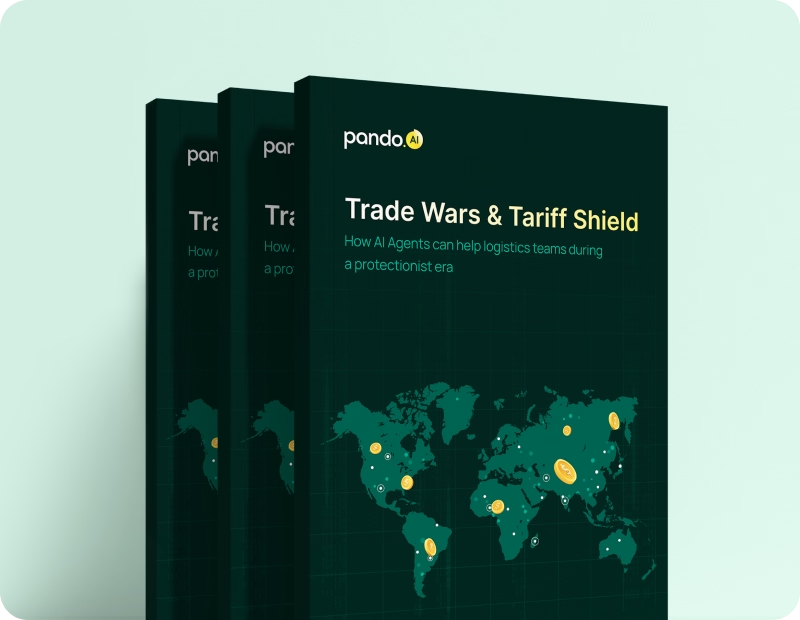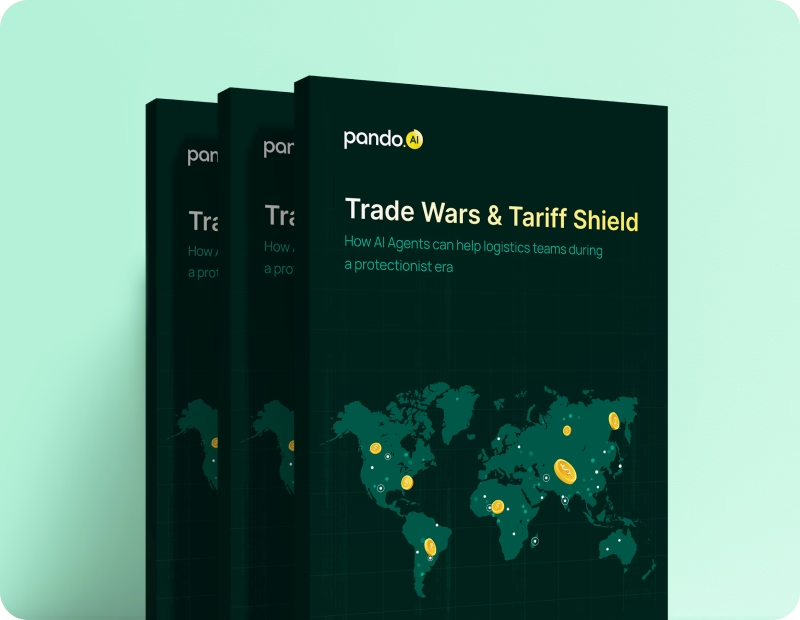-
Products Products
- Industry
- Initiatives
- Resources
- Company
- Book a demo
-
Products Products
- Industry
- Initiatives
- Resources
- Company
- Book a demo
Logistics procurement 101: Intro to the business of procuring transportation
Understand how your business can achieve peak levels of efficiency in logistics procurement despite rising costs, and increasing complexities.
Published on August 19, 2024 • 5 mins read
Rohit Lakshman

Understand how your business can achieve peak levels of efficiency in logistics procurement despite rising costs, and increasing complexities.
Nothing hits a business harder than rising transportation costs. Things get ugly when volumes scale, customers exit your service, or when margins fall. Adding to this, your business should optimize costs while maintaining service quality.
What makes this situation better than worse is when you use spreadsheets to manage logistics in procurement. But don’t worry. Every business goes through this tricky problem and the key to solving it lies in strategically focusing on freight procurement. In simple words, it all starts with selecting the right fleet for the logistics procurement. Let’s find out about this in detail.
What is Logistics procurement?
Procurement logistics involves the strategic planning and execution of acquiring materials, components, and goods necessary for a company's operations. This encompasses identifying needs, selecting suppliers, negotiating contracts, and ensuring timely delivery to support production and distribution. Effective procurement logistics streamline the supply chain, reduce costs, and enhance operational efficiency by maintaining a steady flow of inputs and optimizing the overall procurement process.
Logistics procurement focuses on sourcing transportation and warehousing services for moving and storing goods. It includes inbound logistics procurement, which secures the transport and storage of raw materials and semi-finished goods from suppliers to the company, and outbound logistics procurement, which manages the distribution of finished products to customers.
During peak shipping periods, such as holiday seasons or market surges, companies must implement a robust logistics procurement strategy to secure additional capacity. This approach ensures the timely availability of raw materials and efficient delivery of finished goods, enhancing procurement efficiency and procurement optimization. Effective supply chain procurement is crucial to navigating increased demand and maintaining seamless operations.
Challenges in procurement logistics
Procurement logistics face several challenges that create bottlenecks, hindering supply chain agility and sustainability. These challenges affect everything from the procurement process to the logistics sourcing strategy, impacting overall procurement efficiency and procurement optimization. Addressing these issues is crucial for maintaining a resilient and adaptable supply chain.
1. Inefficient contract processes
Freight contracts typically come in two forms: short-term and long-term. Short-term contracts offer flexibility but often lead to reliance on spot rates, which can fluctuate significantly, resulting in increased costs. Conversely, long-term contracts can lock companies into suboptimal fleet combinations that don't adapt well to changing needs. This lack of agility in the procurement logistics process can lead to inefficiencies and higher expenses.
2. Lack of flexibility in rate forecasting
A rigid approach to rate forecasting can severely limit a company's ability to capitalize on cost-saving opportunities. Inaccurate or inflexible forecasts prevent procurement management from adjusting to market conditions, leading to missed opportunities for procurement optimization and negatively affecting the overall logistics procurement strategy.
3. Fragmented quoting process
When the quoting process is fragmented, it can result in inconsistent and delayed responses, leading to missed service level agreements (SLAs). This disorganization directly impacts customer experience, as delays and inaccuracies in purchasing logistics can erode trust and satisfaction. Efficient supplier logistics are essential to maintaining high customer service standards.
4. Manual decisions in freight sourcing
Relying on manual decisions in freight sourcing without adequate scenario planning can negatively impact both carriers and business profitability. This approach often lacks the strategic foresight needed to optimize supply chain procurement, leading to inefficient carrier utilization and increased costs. Strategic logistics sourcing should involve advanced planning tools to enhance decision-making and profitability.
5. Isolated or siloed contract management
Isolated freight contract management processes can strain the carrier-shipper relationship and limit effective carrier selection. When contract management operates in silos, it prevents a holistic view of carrier performance and market conditions, hampering procurement logistics efforts. Integrated contract management fosters better collaboration and more strategic decisions in logistics procurement.
Addressing these challenges through strategic improvements in procurement logistics can significantly enhance supply chain resilience, agility, and sustainability.
How to improve your freight procurement efficiency?
In a highly competitive logistics landscape, procurement efficiency is a key differentiator. With rising freight contract costs, labor expenses, and other logistical challenges, companies face significant pressure to maintain margins. Efficient logistics procurement strategies are essential for optimizing operations and staying ahead in the market.
- Use automated freight matching - Right carriers for the right orders
Automated freight matching systems enhance procurement efficiency by ensuring the right carriers are matched with the right orders. These systems analyze multiple variables, such as route optimization, carrier performance, and shipment requirements, to assign the most suitable carriers. This reduces transit times, minimizes costs, and improves overall procurement logistics.
- Dynamic freight sourcing: Key to improving the efficiency of procurement logistics
Dynamic freight sourcing allows businesses to quickly compare spot rates and contract costs, facilitating cost-efficient procurement management. By leveraging real-time data, companies can make informed decisions, optimize their logistics sourcing, and adapt to market fluctuations. This approach enhances the efficiency of supply chain procurement and supports strategic procurement optimization.
- Enable contract automation
Automated contract systems streamline the procurement process by renegotiating commissions, regulations, and contract terms. These systems enable shippers to consolidate shipments and secure better terms with carriers. Contract automation not only reduces administrative burdens but also enhances purchasing logistics and improves the overall efficiency of logistics procurement.
- Leverage intelligent scenario planning
Intelligent scenario planning is crucial for navigating supply chain disruptions. By simulating various scenarios, companies can prepare for potential challenges and develop contingency plans. This proactive approach to procurement logistics helps maintain continuity and resilience, ensuring that supply chain operations remain efficient even during unexpected events.
- Optimizing spot rates
Optimizing spot rates allows enterprises to secure additional capacity during peak shipping times. By strategically managing spot rate contracts, companies can balance supply and demand more effectively, ensuring timely deliveries and cost savings. This practice is essential for maintaining procurement efficiency and supporting logistics procurement strategies during high-demand periods.
- Use data-backed decisions
Data-backed decisions are fundamental to improving spend management over time. Utilizing advanced logistics procurement solutions, businesses can analyze historical data, identify trends, and make informed choices that enhance procurement efficiency. This data-driven approach to procurement management supports long-term procurement optimization and drives sustainable improvements in the supply chain.
How does technology add value to procurement logistics?
Technology has become a game-changer in solving procurement logistics challenges, significantly enhancing efficiency and effectiveness. Advanced solutions streamline the procurement process, optimize logistics sourcing, and improve overall procurement management. By automating and integrating various functions, technology ensures seamless supply chain procurement, from purchasing logistics to supplier logistics.
However, a recent Globality report reveals that 79% of procurement teams lack dedicated management software, and 74% of executives still use spreadsheets for tracking procurement performance. This reliance on outdated methods hampers logistics sourcing and affects procurement teams globally.
One example of a technology that adds tremendous value is Pando. Pando’s platform leverages intelligent automation and data-driven insights to enhance logistics procurement strategies. By providing tools for dynamic freight sourcing, contract automation, and scenario planning, Pando helps businesses achieve superior procurement efficiency and procurement optimization. Implementing such technology solutions not only addresses current logistical challenges but also prepares companies for future demands, making them more resilient and competitive in the ever-evolving logistics landscape.
Subscribe to Pando blog and Crossroads newsletter now!
Stay up to date with the latest logistics, transportation, and supply chain tips and news.
Subscribe Here!













